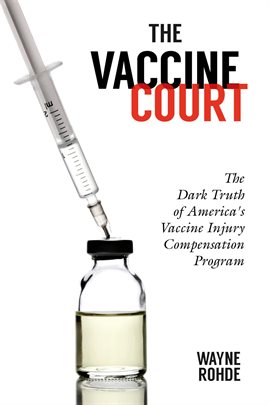- Joined
- Jul 14, 2014
- Messages
- 3,325
- Points
- 113
Given how often Singaporeans eat out and seeing how so many people are stressed and depressed, I won't be surprised if we had very poor gut bacteria health.
https://www.theatlantic.com/health/archive/2015/06/gut-bacteria-on-the-brain/395918/
...
Some of the most intriguing work has been done on autism. For decades, doctors, parents, and researchers have noted that about three-quarters of people with autism also have some gastrointestinal abnormality, like digestive issues, food allergies, or gluten sensitivity. This recognition led scientists to examine potential connections between gut microbes and autism; several recent studies have found that autistic people’s microbiome differs significantly from control groups. The California Institute of Technology microbiologist Sarkis Mazmanian has focused on a common species called Bacteroides fragilis, which is seen in smaller quantities in some children with autism. In a paper published two years ago in the journal Cell, Mazmanian and several colleagues fed B. fragilis from humans to mice with symptoms similar to autism. The treatment altered the makeup of the animals’ microbiome, and more importantly, improved their behavior: They became less anxious, communicated more with other mice, and showed less repetitive behavior.
Exactly how the microbes interact with the illness—whether as a trigger or as a shield—remains mostly a mystery. But Mazmanian and his colleagues have identified one possible link: a chemical called 4-ethylphenylsulphate, or 4EPS, which seems to be produced by gut bacteria. They’ve found that mice with symptoms of autism have blood levels of 4EPS more than 40 times higher than other mice. The link between 4EPS levels and the brain isn’t clear, but when the animals were injected with the compound, they developed autism-like symptoms.
...
Scientists have also gathered evidence that gut bacteria can influence anxiety and depression. Stephen Collins, a gastroenterology researcher at McMaster University in Hamilton, Ontario, has found that strains of two bacteria, lactobacillus and bifidobacterium, reduce anxiety-like behavior in mice (scientists don’t call it “anxiety” because you can’t ask a mouse how it’s feeling). Humans also carry strains of these bacteria in their guts. In one study, he and his colleague collected gut bacteria from a strain of mice prone to anxious behavior, and then transplanted these microbes into another strain inclined to be calm. The result: The tranquil animals appeared to become anxious.
Overall, both of these microbes seem to be major players in the gut-brain axis. John Cryan, a neuroscientist at the University College of Cork in Ireland, has examined the effects of both of them on depression in animals. In a 2010 paper published in Neuroscience, he gave mice either bifidobacterium or the antidepressant Lexapro; he then subjected them to a series of stressful situations, including a test which measured how long they continued to swim in a tank of water with no way out. (They were pulled out after a short period of time, before they drowned.) The microbe and the drug were both effective at increasing the animals’ perseverance, and reducing levels of hormones linked to stress. Another experiment, this time using lactobacillus, had similar results. Cryan is launching a study with humans
...
https://www.theatlantic.com/health/archive/2015/06/gut-bacteria-on-the-brain/395918/
...
Some of the most intriguing work has been done on autism. For decades, doctors, parents, and researchers have noted that about three-quarters of people with autism also have some gastrointestinal abnormality, like digestive issues, food allergies, or gluten sensitivity. This recognition led scientists to examine potential connections between gut microbes and autism; several recent studies have found that autistic people’s microbiome differs significantly from control groups. The California Institute of Technology microbiologist Sarkis Mazmanian has focused on a common species called Bacteroides fragilis, which is seen in smaller quantities in some children with autism. In a paper published two years ago in the journal Cell, Mazmanian and several colleagues fed B. fragilis from humans to mice with symptoms similar to autism. The treatment altered the makeup of the animals’ microbiome, and more importantly, improved their behavior: They became less anxious, communicated more with other mice, and showed less repetitive behavior.
Exactly how the microbes interact with the illness—whether as a trigger or as a shield—remains mostly a mystery. But Mazmanian and his colleagues have identified one possible link: a chemical called 4-ethylphenylsulphate, or 4EPS, which seems to be produced by gut bacteria. They’ve found that mice with symptoms of autism have blood levels of 4EPS more than 40 times higher than other mice. The link between 4EPS levels and the brain isn’t clear, but when the animals were injected with the compound, they developed autism-like symptoms.
...
Scientists have also gathered evidence that gut bacteria can influence anxiety and depression. Stephen Collins, a gastroenterology researcher at McMaster University in Hamilton, Ontario, has found that strains of two bacteria, lactobacillus and bifidobacterium, reduce anxiety-like behavior in mice (scientists don’t call it “anxiety” because you can’t ask a mouse how it’s feeling). Humans also carry strains of these bacteria in their guts. In one study, he and his colleague collected gut bacteria from a strain of mice prone to anxious behavior, and then transplanted these microbes into another strain inclined to be calm. The result: The tranquil animals appeared to become anxious.
Overall, both of these microbes seem to be major players in the gut-brain axis. John Cryan, a neuroscientist at the University College of Cork in Ireland, has examined the effects of both of them on depression in animals. In a 2010 paper published in Neuroscience, he gave mice either bifidobacterium or the antidepressant Lexapro; he then subjected them to a series of stressful situations, including a test which measured how long they continued to swim in a tank of water with no way out. (They were pulled out after a short period of time, before they drowned.) The microbe and the drug were both effective at increasing the animals’ perseverance, and reducing levels of hormones linked to stress. Another experiment, this time using lactobacillus, had similar results. Cryan is launching a study with humans
...







